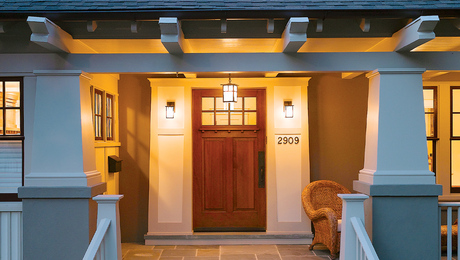After spending an hour in Lowe’s yesterday checking out their products, it seems none are highly accurate. The self-leveling ones say +/- 3 to 6 degrees, and the manual leveling ones didn’t seem to have the best bubble vials on them. The beams seem pretty accurate though, +/- 1/8 to 1/4 inch at 100 feet or so.
Any feedback on accuracy??? Is everyone just relying on the lasers, or perhaps checking them with water/hose levels?
Thanks!!



















Replies
>> ... +/- 3 to 6 degrees ...
That can't be right. Six degrees is 5 inches in 4 feet.
My thoughts exactly! But see below, copied right from DeWalt's website. What am I missing here? Now that I think about it, perhaps it's saying the range within it can self-level?? Maybe if it's rested 10 degrees off level it can't get to level, but if it's only 5 degrees it can? I guess that makes more sense!
Self-Leveling Range
±5 °
Accuracy @ 100 ft.
1/8 in
Yep, that's how close to level you have to get the device for it to self-level.
yes, in other words, it can be as much as 5 degrees from level, and it will still be able to provide a level laser line.
My unit has been very good, and repeatable, but you should check often and re initialize when needed.
Keep in mind that plus or minus 1/8th inch at 100 feet is a range of 1/4 inch.Jake Gulick
[email protected]
CarriageHouse Design
Black Rock, CT
I have the cheap Robo-Toolz (or something similar) visible beam remote control self leveling one. It's either 1/8" in 50 or 100'. After several years of infrequent use, seems to work to specs.
BTW - someone here talked about checking and calibrating this laser level...
Anyone????
Thanks
nearly all lazer levels are accuracy to 1/8 in 100 feet. it not they can get better. At this distance the curvtive of the earth applies. with a sight level, 100 feet is a good shot the read a rule within 1/8 at 300 feet to read to a tenths of foot is fun.
what I,m saying the lazer is shooting level but the earth curve so the level is no longer parrallel with the ground.
So, we need a bigger planet to make it work right at longer distances...
I have a David White manual rotating laser. I have to agree that the vials don't give me absolute confidence on getting it level. It also is fairly dim, which creates a problem in bright areas - for best accuracy I would probably need to work at night. I have a Top Gun standard laser level (don't know the proper term) that is quite a bit brighter than the David White. Tried shooting down a fence line at dusk and at 600' I could see the spot pretty well, only it was about the diameter of a soccer ball at that distance.
At 100 feet, the curvature of the earth would cause an error of .002", less than one tenth of a 32nd. You need to run out 660' to have an error of 1/8", assuming the laser is dead on.
Jon Blakemore
Yea, but he makes an interesting point. I wonder what they do when laying out, say, a 1/3 mile long manufacturing facility building? Set a super quality laser right in the middle? Or maybe, as you say, the error is so negligible, they don't even pay attention to it. Also what about surveyors? I guess they take curvature of the earth into effect when they set their benchmarks (correct term?) that state what the elevation is.... Matt
Speaking of surveyors and curvature of the earth; yes, they do. When I was a young bucko and worked summers at a new mine, I helped the surveyors lay out the location of the second mine shaft, so they could start drilling up to meet the crew coming down. We dropped two plumb bobs down a 2500 ft mine shaft; the plumb bobs were in buckets of oil to help stabilize them. We had to take into account the fact that underground, we were 2500 ft closer to the center of the earth than we were on surface.
In the end, our centerline was 3/4" off. Not bad for a 30 ft dia shaft....
And, as far as lasers goes, part of the accuracy of 1/4" at 100 ft is the size of the beam; it grows larger as it goes along, so it is less accurate.
Edited 4/22/2004 3:18 pm ET by TenPenny
yes, you right and then you have variables of level, pickup etc.
IMHO a properly setup water level is the gold standard. A few dozen times I have pointed out where an 'absolutely accurate and reliable, laser level has been wrong. Sometimes so obviously off that the naked eye could catch it if the operator hadn't had a blind faith in the justice of a laser unit.
A lot of people seem to think of laser levels like they used to think about computers. They used to tell people that the computer couldn't be wrong. As if the technology was immune to human influence or error. A laser, in and of itself, is no more likely to be inherently accurate without careful setup and periodic recalibration than anything else.